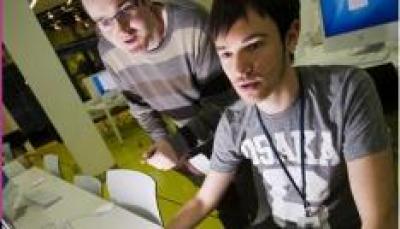IT Skills Drive For British School Kids Revealed

A new scheme backed by the tech sector will see schoolchildren taught how to design their own software
The government has responded to concerns in the tech industry about the lack of appropriate IT skills, launching a new initiative to transform the school IT curriculum.
Last month the IT skills shortage issue in the UK was highlighted by Google chairman Eric Schmidt.
Schmidt criticised the British education system for failing to ignite young people’s passion for science, engineering and maths. He also said that not making IT compulsory as a subject at GSCE-level and not providing enough support for science students at college meant the country was “throwing away” its computing heritage.
“I was flabbergasted to learn that today computer science isn’t even taught as standard in UK schools,” Schmidt said at that time. “Your IT curriculum focuses on teaching how to use software, but gives no insight into how it’s made.
e-Skills Trial
However it seems the government has woken up the issue, after announcing that British teenagers will be taught how to design their own software in a trial initiative.
Science minister David Willetts made the announcement during a visit to the British Festival of Science at the University of Bradford. The scheme, headed by e-Skills, will initially be launched from November at 20 schools in England.
If successful, the move will lead to new GCSE and A-level courses.
“The deal is this, there are 20 schools participating in this trial,” explained a spokesman at the Department for Business, Innovation and Skills, speaking to eWEEK Europe UK.
“It is being operated in conjunction with a number of businesses. Over the course of two school terms, that programme of activity will be accessed and evaluated with a view to creation of new curriculum,” he said. “It is all very tentative, but it is the first possible step to creating a new GCSE and a new A-level.”
The spokesman confirmed that companies such as IBM, Hewlett Packard, Microsoft, Cisco, the BBC, Capgemini, Deloitte, John Lewis, the National Grid, and Procter & Gamble, will be participating.
“All of these organisations will be providing someone to go into that school to talk with the kids about specific aspects of IT and how it applies in the workplace,” the spokesman said.
Skills Shortage
The pilot scheme will involve around 100 GCSE pupils and is being conducted on a voluntary extra-curricular basis. Some of the schools named as participants are Manchester Grammar, Bradfield College, Reading, Park House School, Newbury, and Townley Grammar in Bexleyheath, Kent.
 “There’s going to be a live pilot over two terms in schools of a programme that will transform the IT curriculum away from computer literacy, which we believe many young people can do earlier, towards instead how they develop software and computational principles; how they can create their own programmes,” David Willetts was quoted as saying by the Press Association.
“There’s going to be a live pilot over two terms in schools of a programme that will transform the IT curriculum away from computer literacy, which we believe many young people can do earlier, towards instead how they develop software and computational principles; how they can create their own programmes,” David Willetts was quoted as saying by the Press Association.
“I want to see the ability to create software, to write programmes, that is one of the key functional skills for the 21st century, and young people going through school, college and university should have the opportunity to generate those skills,” he added.
Willetts made clear that by the age of 15 or 16 most school children had “quite a sophisticated” knowledge of IT, but admitted that the current curriculum saw youngsters being taught basic skills they already know.
And Willetts is painfully aware of the IT skills shortage in the UK, especially programmers. “I’m told that is like gold dust for the business sector,” said Willetts.
Behind The Screen
Steve Beswick, UK director of education for Microsoft, warned last month that there was a decline in the number of students taking IT-related A-levels, based on 2011 figures. He warned that there would be no-one to fill the jobs available in the marketplace, and that meant jobs being outsourced to India and China.
Meanwhile the e-Skills scheme, dubbed “Behind the Screen” has already received the backing of the Royal Society.
“I warmly welcome the Minister’s recognition of the need to develop computational thinking in schools, which the Royal Society first highlighted back in 2010 with the start of a new project to investigate the deeply worrying state of computing and ICT in schools,” said Professor Steve Furber, Chair of the Royal Society’s Computing in Schools project.
“This is, for example, the eighth successive year that we have seen declines in numbers of students taking Computing A Levels and similar declines have also been seen at GCSE level,” said Professor Furber. “At a time at which computing skills are becoming more and more vital to the UK economy, this is a situation that is causing great consternation not only throughout the academic community, but also within commerce and industry.”
“The Royal Society will be publishing a comprehensive report on our study in early 2012 and looks forward to discussing our findings and recommendations with the Department,” he said.